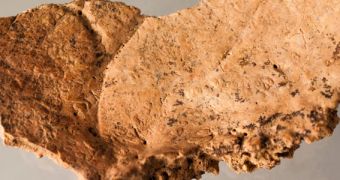University of Valencia professor of prehistory Valentín Villaverde and his team announce the recovery of three new Neanderthal fossils, from the Cova Negra Paleolithic dig site. The announcement was made during a conference held on October 29.
According to investigators, one of the fossils had marks consistent with animal bits on its skull, which may have been produced after the individual died. Another fossils displayed signs of cuts by a sharp instrument, potentially hinting at an instance of cannibalism or religious rite or sacrifice.
The Cova Negra deposit has thus far revealed seven Neanderthal individuals: two adults, four children and a teenager. Villaverde believes that this site has not yet yielded all of its secrets, and estimates that at least a dozen more individuals are still buried here, AlphaGalileo reports.
With this discovery, anthropologists can now refine their understanding of ancient Neanderthals, as well as of their spread patterns throughout Europe. This species is believed to have disappeared between 36,000 and 33,000 years ago, as Homo sapiens populated Europe from eastern Africa.

 14 DAY TRIAL //
14 DAY TRIAL //